
Livigno: The Alpine Gem of Italy
Nestled in the heart of the Italian Alps, Livigno is a charming town that offers stunning landscapes and a unique cultural experience. Known for its picturesque snow-capped mountains and pristine nature, Livigno is a paradise for outdoor enthusiasts. Winter sports lovers will find world-class skiing and snowboarding facilities, while summer visitors can enjoy hiking, mountain biking, and breathtaking scenery. The town itself is a blend of traditional Alpine architecture and modern amenities. Stroll through the quaint streets and enjoy the local shops, cafes, and restaurants. Livigno is also famous for its duty-free shopping, offering great deals on a variety of goods. The local cuisine is a highlight, with hearty dishes that reflect the region's rich culinary heritage. Livigno’s unique location, close to the Swiss border, makes it an ideal base for exploring both Italy and Switzerland. Whether you're seeking adventure or relaxation, Livigno offers a serene escape with plenty to see and do.
Local tips in Livigno
- Plan your visit during the shoulder seasons (late spring or early autumn) to enjoy mild weather and fewer crowds.
- Take advantage of Livigno's duty-free status for great shopping deals, especially on electronics and perfumes.
- Don't miss the local specialty, pizzoccheri, a hearty pasta dish made with buckwheat flour and local cheese.
- Use the free shuttle bus service within Livigno to easily get around town and to the ski slopes.
- If visiting in winter, book your ski passes and rentals in advance to avoid long lines and ensure availability.
Livigno: The Alpine Gem of Italy
Nestled in the heart of the Italian Alps, Livigno is a charming town that offers stunning landscapes and a unique cultural experience. Known for its picturesque snow-capped mountains and pristine nature, Livigno is a paradise for outdoor enthusiasts. Winter sports lovers will find world-class skiing and snowboarding facilities, while summer visitors can enjoy hiking, mountain biking, and breathtaking scenery. The town itself is a blend of traditional Alpine architecture and modern amenities. Stroll through the quaint streets and enjoy the local shops, cafes, and restaurants. Livigno is also famous for its duty-free shopping, offering great deals on a variety of goods. The local cuisine is a highlight, with hearty dishes that reflect the region's rich culinary heritage. Livigno’s unique location, close to the Swiss border, makes it an ideal base for exploring both Italy and Switzerland. Whether you're seeking adventure or relaxation, Livigno offers a serene escape with plenty to see and do.
When is the best time to go to Livigno?
Iconic landmarks you can’t miss
Mottolino Fun Mountain
Discover Mottolino Fun Mountain in Livigno: a premier ski resort offering thrilling slopes, stunning alpine views, and a vibrant après-ski scene.
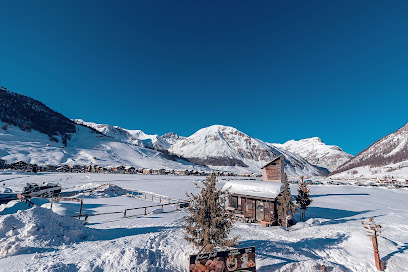
Carosello 3000 - Livigno
Experience the thrill of skiing at Carosello 3000, Livigno's premier resort, with stunning views and diverse slopes for every level.
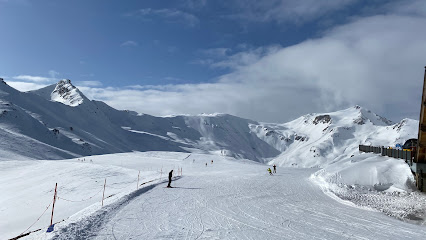
Larix Park
Experience adventure and breathtaking views at Larix Park, the premier amusement park in Livigno, Italy, perfect for families and thrill-seekers alike.
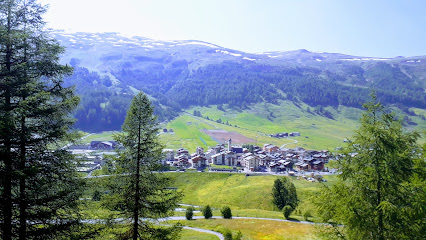
Sitas Livigno
Discover Sitas Livigno, Italy's premier ski resort, where breathtaking slopes meet vibrant après-ski culture in the heart of the Alps.
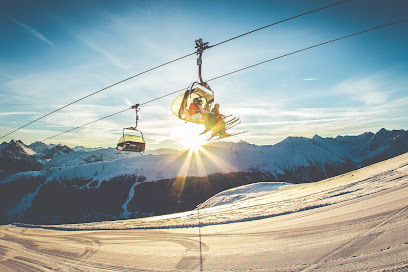
MUS! Museo di Livigno e Trepalle
Immerse yourself in the alpine heritage at MUS! Museo di Livigno e Trepalle, where history and culture of Livigno come alive through engaging exhibits.
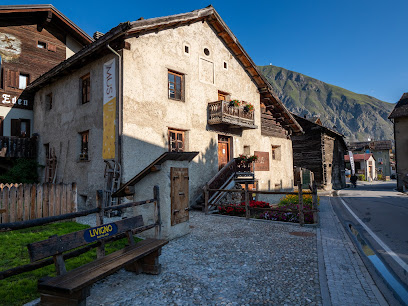
Chiesa di San Rocco
Explore the captivating Chiesa di San Rocco in Livigno, a historic Catholic church surrounded by stunning Alpine landscapes.
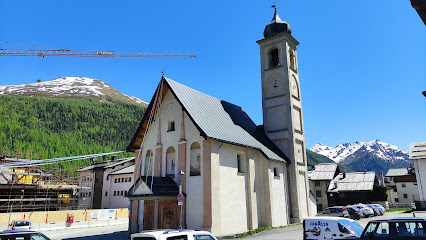
Santa Maria Nascente
Discover the serene beauty of Santa Maria Nascente, a stunning Catholic church in Livigno, surrounded by breathtaking alpine landscapes and rich history.
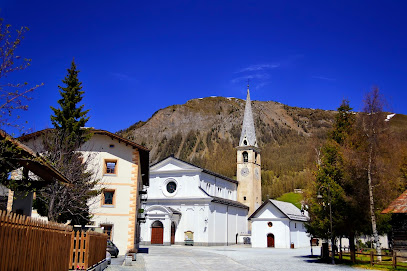
Webcam Livigno
Discover the stunning landscapes of Livigno through its iconic webcam, showcasing breathtaking views all year round in the heart of the Italian Alps.
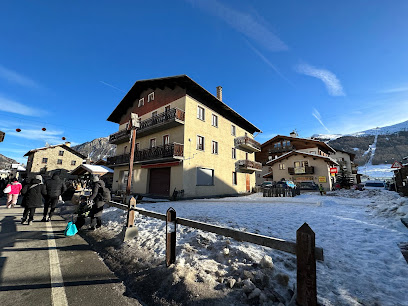
Monte delle Rezze
Discover the breathtaking views and serene beauty of Monte delle Rezze in Livigno, a picturesque destination for nature lovers and outdoor enthusiasts.
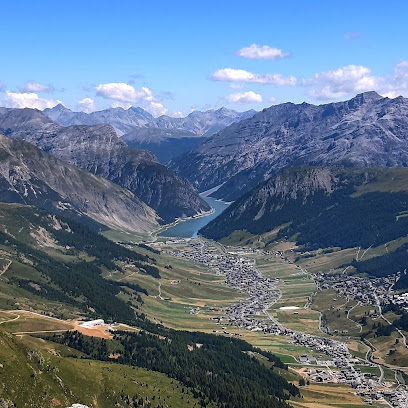
Plaza Placheda
Experience the vibrant culture and stunning natural beauty at Plaza Placheda, the civic center at the heart of Livigno, Italy.
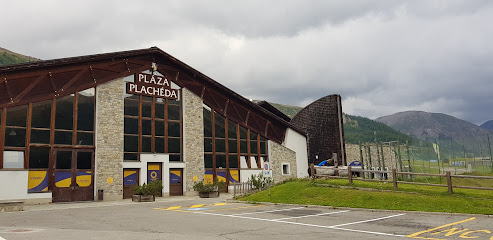
Chiesa di Sant'Antonio
Explore the serene Chiesa di Sant'Antonio in Livigno, a beautiful Christian church surrounded by breathtaking alpine landscapes and rich local history.
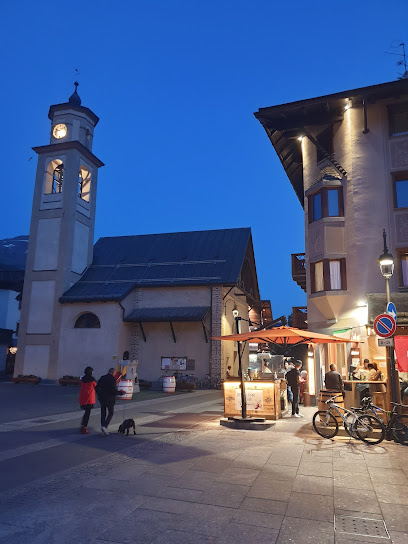
Unmissable attractions to see
Mottolino Fun Mountain
Experience thrilling outdoor adventures and breathtaking Alpine views at Mottolino Fun Mountain, Livigno's premier year-round destination.
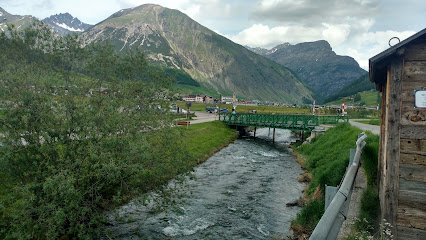
Carosello 3000 - Livigno
Experience thrilling mountain adventures and breathtaking alpine views at Carosello 3000 in Livigno, Italy.
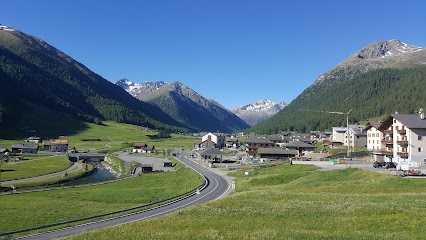
Aquagranda Active You
Experience Europe's premier wellness center in Livigno: Aquagranda Active You, where fun, sport, and relaxation meet at high altitude.
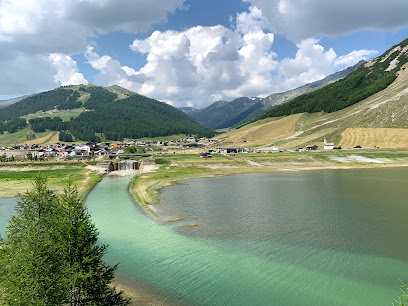
Swiss National Park
Discover Switzerland's oldest national park: A pristine Alpine wilderness with diverse wildlife, hiking trails, and a commitment to nature conservation.
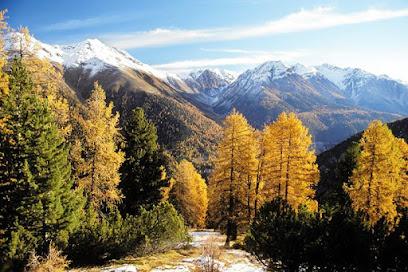
Larix Park
Experience thrilling treetop adventures at Larix Park in Livigno, with courses for all ages set in a stunning natural environment.
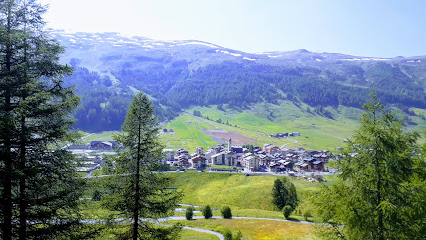
Cascata della val Nera
Discover the breathtaking Cascata della val Nera in Livigno: a scenic hike to a stunning waterfall amidst the beauty of the Italian Alps.
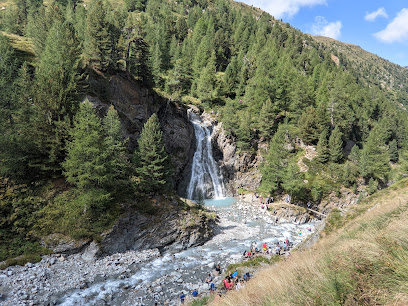
Kreisviadukt von Brusio
An architectural marvel on the Bernina Railway, the Brusio Spiral Viaduct offers stunning views and a unique train travel experience in the Swiss Alps.
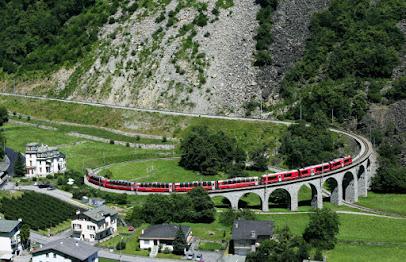
Crap de La Paré
Hike to Crap de La Paré for breathtaking panoramic views of Livigno and its stunning alpine surroundings. A must-see destination!
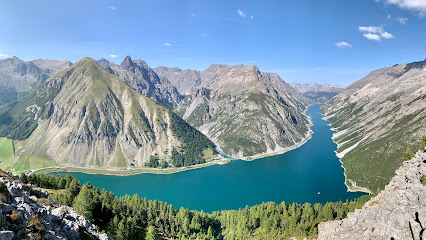
Sitas Livigno
Experience the heart of Livigno's ski scene at Sitas: diverse slopes, modern lifts, and easy access to endless winter adventures.
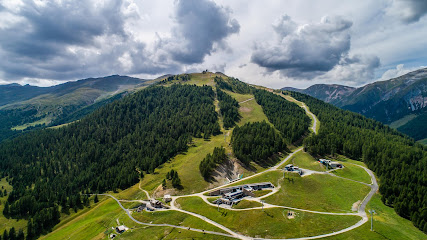
MUS! Museo di Livigno e Trepalle
Discover the captivating history and traditions of Livigno and Trepalle at this immersive ethnographic museum.
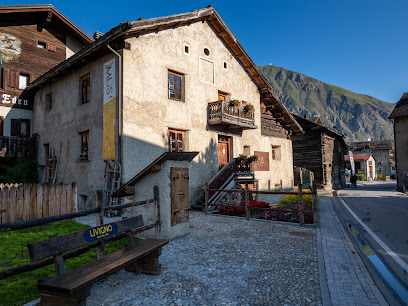
Lungo Lago Livigno
Discover the serene beauty and diverse wildlife of Lungo Lago Livigno, a hidden gem in the heart of the Italian Alps.
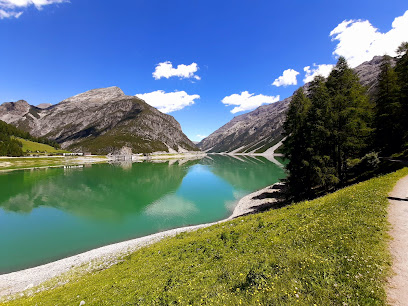
Chiesa di San Rocco
Discover the serene Chiesa di San Rocco in Livigno, a historic church offering a peaceful retreat amidst stunning Alpine scenery.
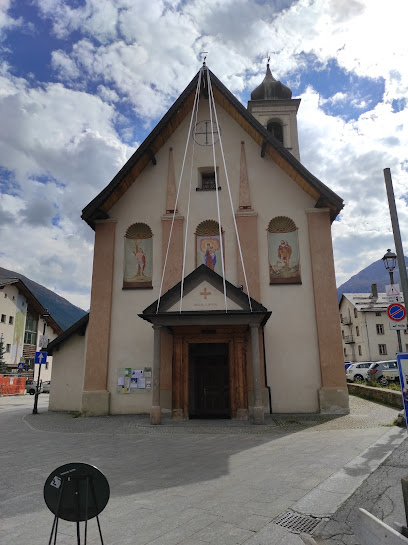
Morteratsch Glacier
Experience the majestic Morteratsch Glacier, a stunning natural wonder and a visible reminder of climate change in the Swiss Alps.
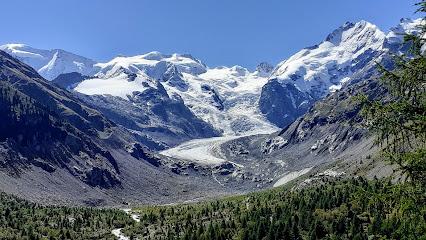
Val Federia
Escape to Val Federia, Livigno's hidden gem: pristine alpine beauty, tranquil hiking, and unspoiled nature await in this serene valley.
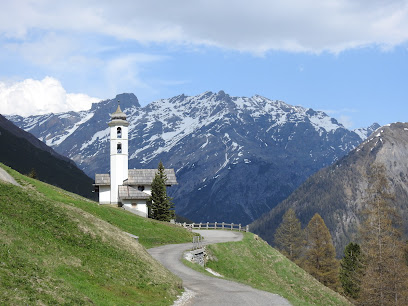
Chamanna Cluozza
Escape to the heart of the Swiss National Park at Chamanna Cluozza, the only catered hut offering wilderness and hiking adventures.

Essential places to dine
Bait dal Ghet
Experience authentic Italian cuisine at Bait dal Ghet in Livigno - where every pizza tells a story of tradition and flavor.
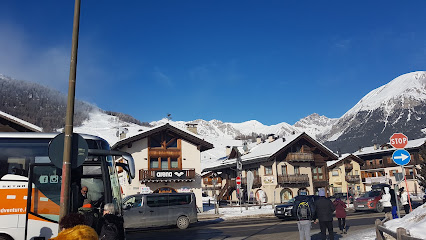
Bivio Bistrot & Restaurant
Discover the perfect blend of Italian cuisine and nightlife at Bivio Bistrot & Restaurant in beautiful Livigno.
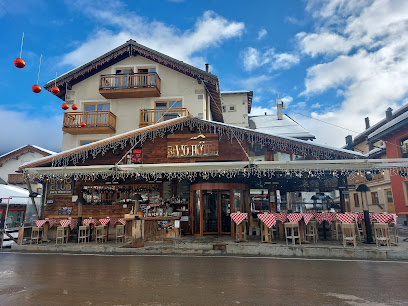
La Calcheira
Experience the heart of Italy at La Calcheira in Livigno – where authentic flavors meet warm hospitality.
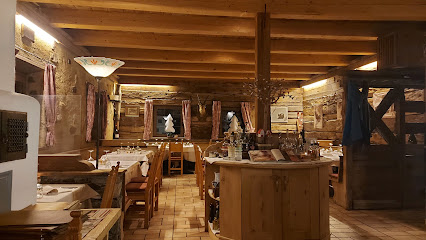
Bellavista
Experience authentic Italian cuisine at Bellavista in Livigno, where delicious pizzas meet cozy alpine charm.
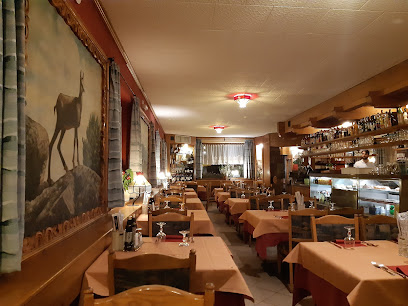
La Piöda
Experience authentic Italian cuisine at La Piöda in Livigno - family-friendly dining with gluten-free options amidst stunning alpine views.
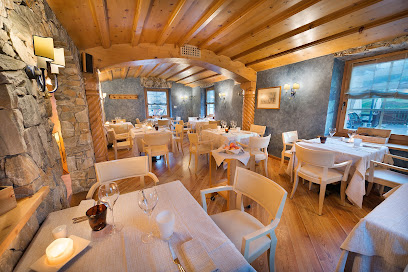
Ristorante Pizzeria La Mirage
Experience authentic Italian cuisine at Ristorante Pizzeria La Mirage in Livigno—where every meal is a celebration of flavor and tradition.
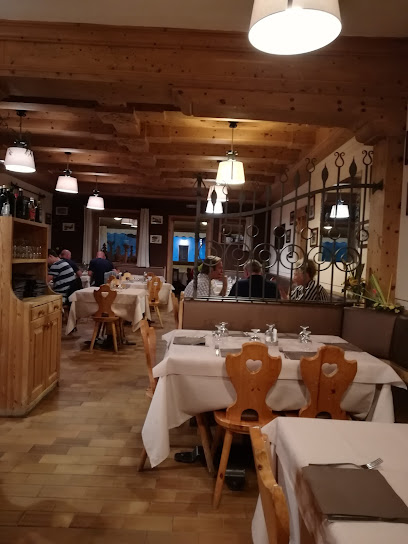
Why not? Livigno
Discover mouthwatering burgers in the heart of Livigno's stunning alpine scenery at Why Not? Livigno.
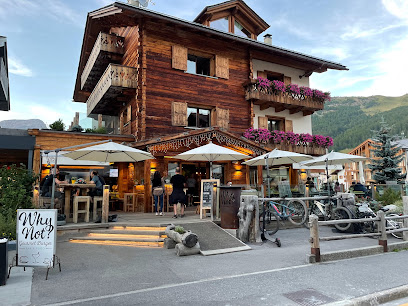
Ristorante Il Cenacolo
Experience authentic Italian cuisine at Ristorante Il Cenacolo in Livigno - where every dish tells a story of tradition and flavor.
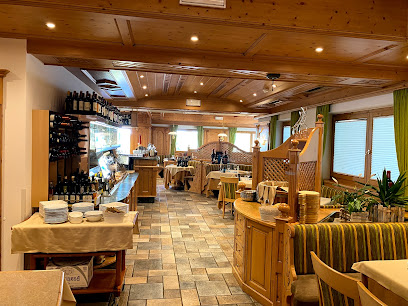
Marcos Pub & Bistrot
Discover the cozy ambiance and delectable Italian dishes at Marcos Pub & Bistrot in Livigno – perfect for all food lovers seeking authentic flavors.
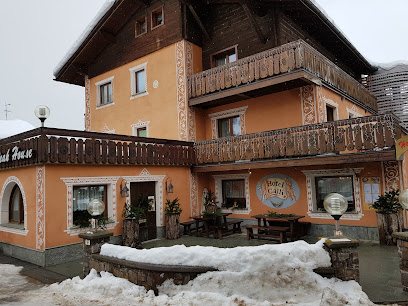
Mauri's Hamburgheria
Discover the best burgers in Livigno at Mauri's Hamburgheria – where quality meets taste in a cozy alpine setting.
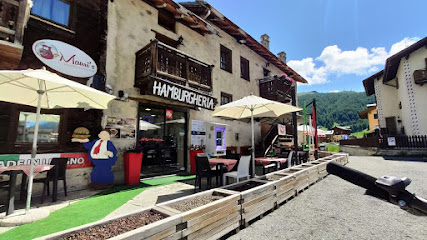
Focolare
Discover authentic Italian flavors at Focolare in Livigno – where culinary tradition meets stunning alpine beauty.
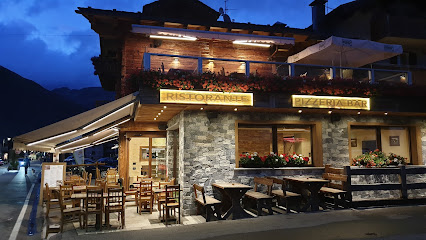
Rusticana
Experience authentic Italian pizza at Rusticana in Livigno – where every slice tells a story of flavor and tradition.
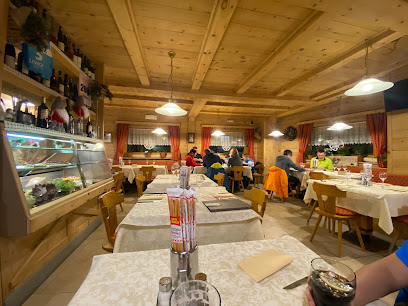
Dosdè
Discover authentic Italian flavors at Dosdè in Livigno - where every meal is a celebration of local ingredients and culinary tradition.
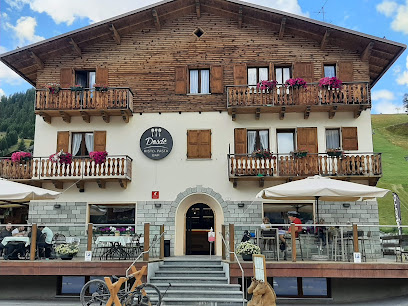
Ristorante Pizzeria San Giovanni
Experience authentic Italian cuisine at Ristorante Pizzeria San Giovanni in Livigno – where every dish tells a story!
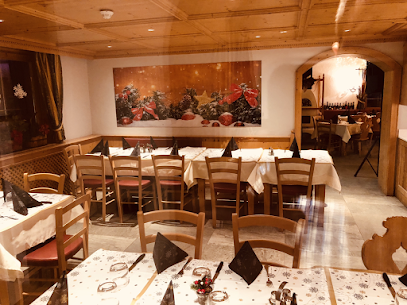
Al Mond Vei
Experience exquisite Italian cuisine amidst breathtaking Alpine scenery at Al Mond Vei in Livigno.
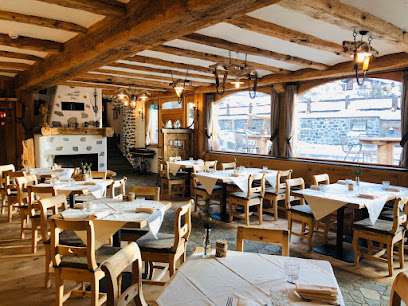
Markets, malls and hidden boutiques
La Galleria Livigno
Discover the perfect blend of electronics, clothing, and sportswear at La Galleria Livigno, where shopping meets alpine charm in Italy.
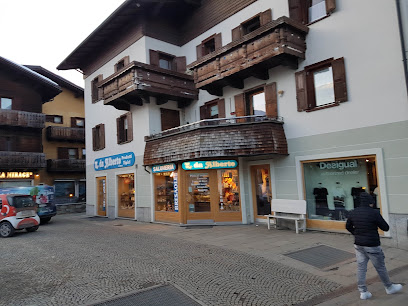
El Corambrero Livigno
Explore El Corambrero in Livigno for unique antiques, crafts, and souvenirs that capture the spirit of the Alps.
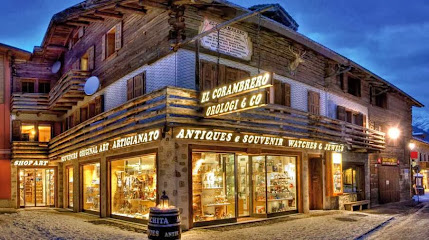
Zinermann Sporting
Explore the best of Livigno with Zinermann Sporting, your ultimate destination for premium outdoor and sporting goods.
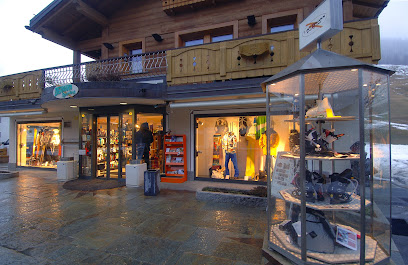
Bazar Longa Livigno
Discover unique souvenirs and local crafts at Bazar Longa, Livigno's charming gift shop in the heart of the Italian Alps.
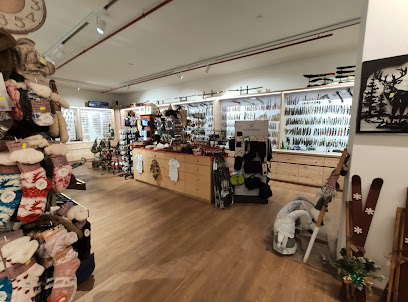
Shoppix
Discover Shoppix in Livigno for an exceptional shopping experience blending duty-free delights with local treasures, all in a charming alpine setting.
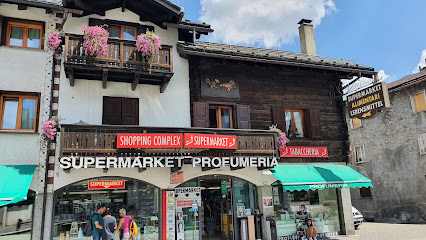
Timberland Store Livigno
Explore top-quality footwear and outdoor apparel at Timberland Store Livigno, where adventure meets style in the heart of the Italian Alps.
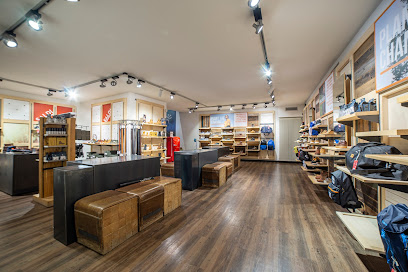
Quiyou Emporio Armani
Explore high-end fashion and luxury shopping at Quiyou Emporio Armani in Livigno, Italy, where style meets elegance in the heart of the Alps.
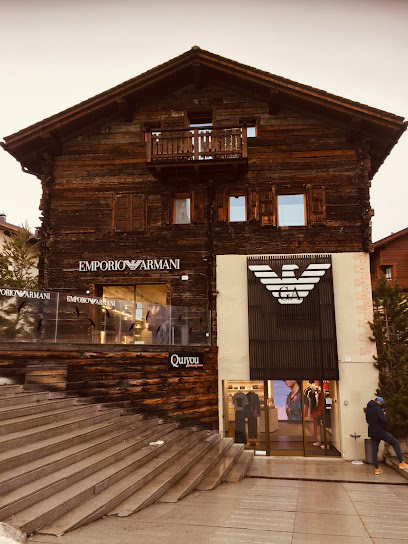
Mountain Planet Sport Livigno
Explore the Alpine wonders with top-notch gear from Mountain Planet Sport Livigno, your essential stop for adventure sports and outdoor equipment.
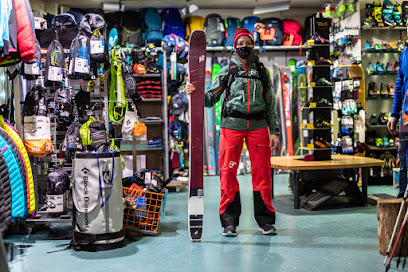
The North Face Store Livigno
Explore the best outdoor gear at The North Face Store in Livigno, perfect for your alpine adventures and activities.
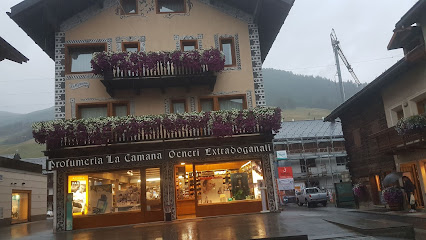
Carpisa - Livigno Store
Explore Carpisa in Livigno for stylish and durable luggage, bags, and travel accessories that elevate your travel experience.
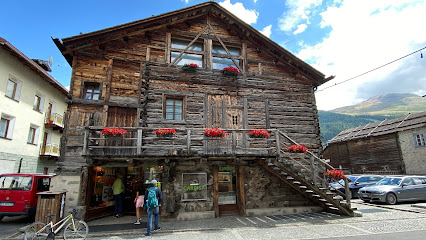
Original Galli Outlet
Discover unbeatable fashion deals at the Original Galli Outlet in Livigno, where style meets stunning alpine beauty.
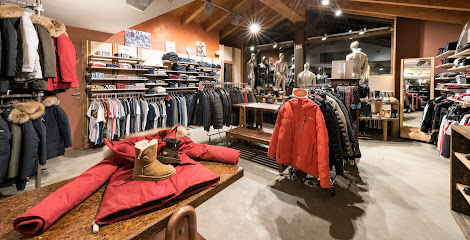
Da Giuseppina 1941
Explore the best of men's fashion at Da Giuseppina 1941, a stylish clothing store in the heart of Livigno, perfect for every alpine adventure.
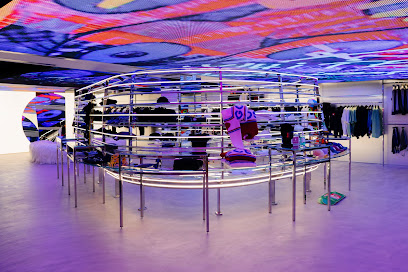
Botia Cantoni
Discover tax-free shopping at Botia Cantoni in Livigno, offering luxury goods and local specialties amid stunning alpine views.
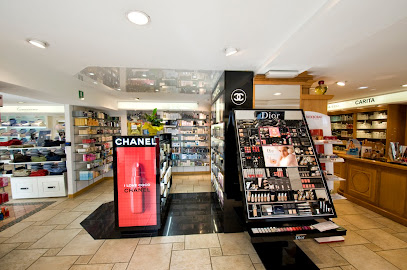
MountainStore 1816
Discover premier sportswear at MountainStore 1816 in Livigno, where adventure meets quality gear for every outdoor enthusiast.
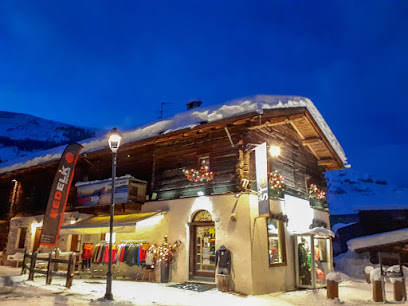
LUNGOLIVIGNO FASHION - OUTLET
Discover unbeatable deals on trendy clothing at Lungolivigno Fashion Outlet, your ultimate shopping destination in the heart of the Italian Alps.
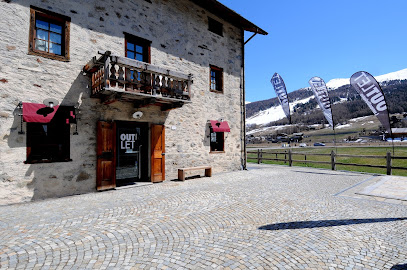
Essential bars & hidden hideouts
Birrificio 1816
Experience the best of Livigno at Birrificio 1816, where craft beer meets delicious calzones in a warm, inviting atmosphere.
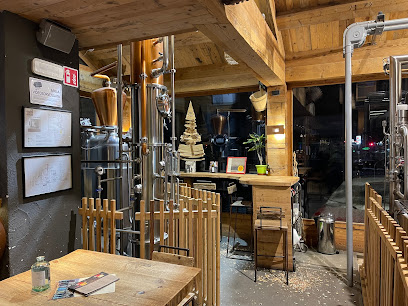
Ristorante Pizzeria La Grolla
Savor authentic Italian cuisine and wood-fired pizzas at Ristorante Pizzeria La Grolla in Livigno, a perfect blend of taste and alpine charm.
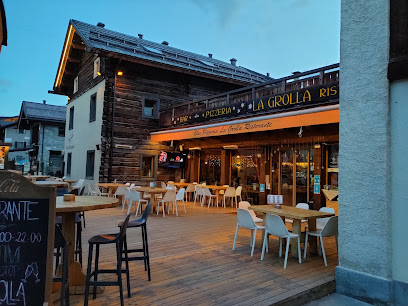
Bivio Bistrot & Restaurant
Experience the best of Italian cuisine and vibrant nightlife at Bivio Bistrot & Restaurant in the heart of Livigno.
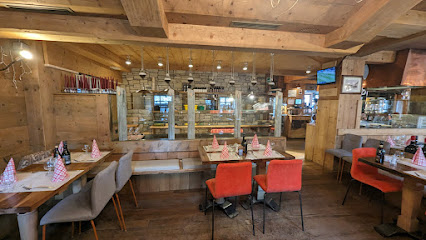
Why not? Livigno
Experience the taste of gourmet burgers in Livigno's charming alpine setting at Why Not? Livigno, your go-to burger spot.
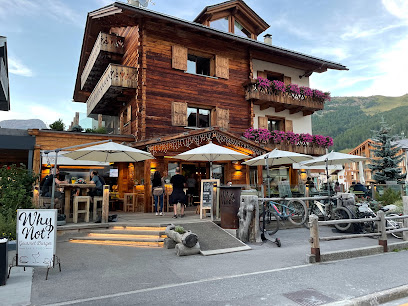
Marcos Pub & Bistrot
Discover the perfect blend of pub comfort and bistro sophistication at Marcos Pub & Bistrot in Livigno, Italy.
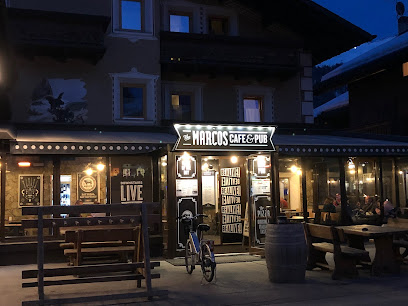
Diva Caffè
Discover the cozy atmosphere of Diva Caffè in Livigno, where delicious coffee and alpine charm come together for an unforgettable experience.
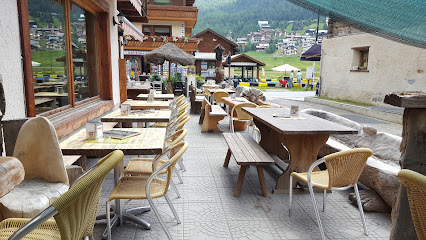
Cronox
Experience the lively atmosphere and delicious cuisine at Cronox, Livigno's top gastropub with entertainment options for everyone.
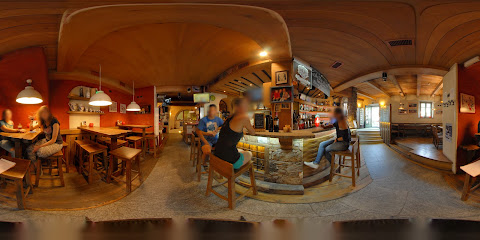
Roxy
Discover the authentic taste of Italy at Roxy, Livigno's premier pizza destination, offering a delightful dining experience amidst stunning mountain views.
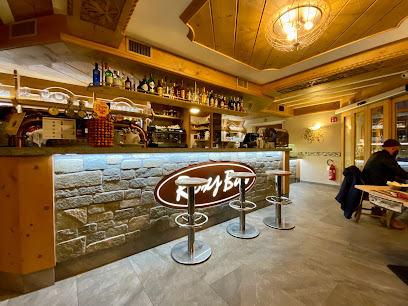
Kosmo Taste the Mountain
Discover the culinary thrills of Kosmo Taste the Mountain, where exquisite dining and vibrant cocktails meet in the heart of Livigno's stunning scenery.
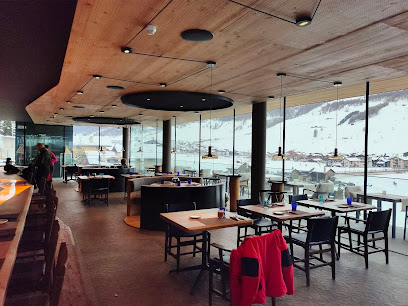
Paprika
Experience exquisite local flavors and a warm atmosphere at Paprika, a premier bar and bistro in the enchanting town of Livigno.
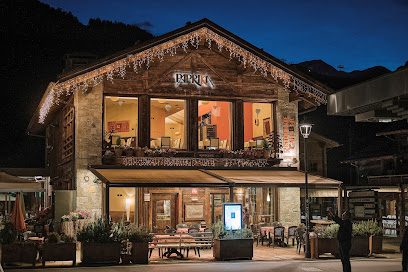
Bar The King
Experience the vibrant energy of Bar The King in Livigno, where live music, delicious snacks, and an inviting atmosphere await every visitor.
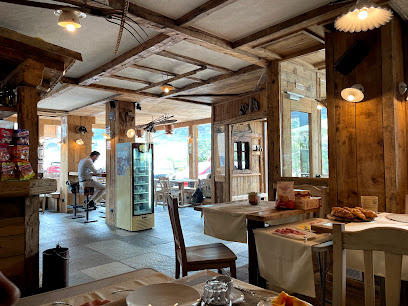
Alibi Cafe'
Discover the essence of Italian coffee culture at Alibi Cafe' in Livigno - a cozy espresso bar for tourists and locals alike.
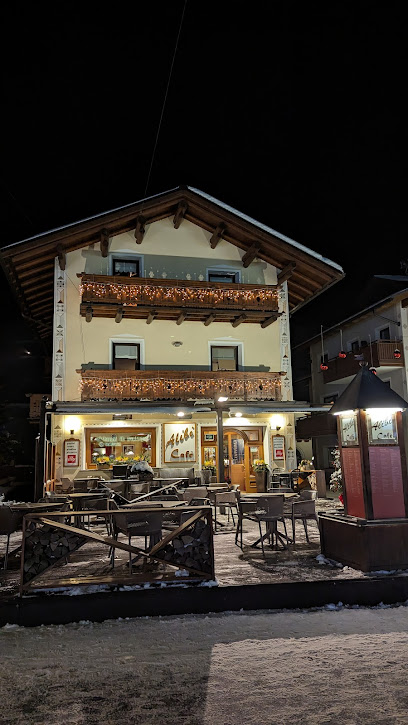
BaRin
Discover BaRin in Livigno: A cozy bar offering exquisite small plates and cocktails in the heart of the Italian Alps.
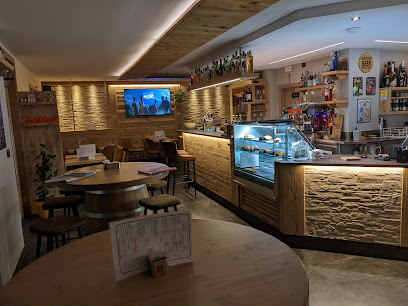
David's Après Ski
Discover the enchanting ambiance and delicious flavors of David's Après Ski, a premier dining spot in Livigno ideal for post-ski relaxation.
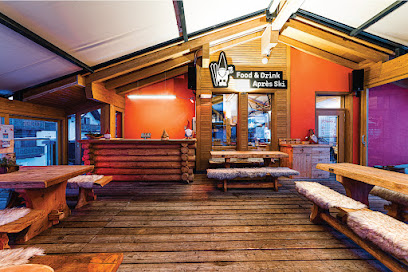
Concordia Restaurant
Experience the best of Italian alpine cuisine at Concordia Restaurant, a perfect blend of fine dining and bar ambiance in Livigno.
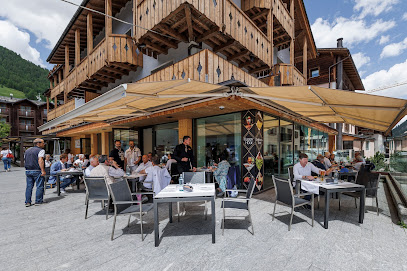
Local Phrases about Livigno
-
- HelloCiao
[chow] - GoodbyeArrivederci
[ah-ree-veh-dehr-chee] - YesSì
[see] - NoNo
[noh] - Please/You're welcomePer favore/Prego
[pair fah-voh-reh/preh-goh] - Thank youGrazie
[grah-tsyeh] - Excuse me/SorryScusami/Scusa
[skoo-sah-mee/skoo-sah] - How are you?Come stai?
[koh-meh stah-ee] - Fine. And you?Bene. E tu?
[beh-neh. eh too] - Do you speak English?Parli inglese?
[pahr-lee een-gleh-zeh] - I don't understandNon capisco
[nohn kah-pee-skoh]
- HelloCiao
-
- I'd like to see the menu, pleaseVorrei vedere il menù, per favore
[vohr-reh-ee veh-deh-reh eel meh-noo, pair fah-voh-reh] - I don't eat meatNon mangio carne
[nohn mahn-joh kahr-neh] - Cheers!Salute!
[sah-loo-teh] - I would like to pay, pleaseVorrei pagare, per favore
[vohr-reh-ee pah-gah-reh, pair fah-voh-reh]
- I'd like to see the menu, pleaseVorrei vedere il menù, per favore
-
- Help!Aiuto!
[ah-yoo-toh] - Go away!Vattene!
[vaht-teh-neh] - Call the Police!Chiama la polizia!
[kyah-mah lah poh-lee-tsyah] - Call a doctor!Chiama un dottore!
[kyah-mah oon doh-toh-reh] - I'm lostMi sono perso
[mee soh-noh pehr-soh] - I'm illSono malato
[soh-noh mah-lah-toh]
- Help!Aiuto!
-
- I'd like to buy...Vorrei comprare...
[vohr-reh-ee kohm-prah-reh...] - I'm just lookingSto solo guardando
[stoh soh-loh gwar-dahn-doh] - How much is it?Quanto costa?
[kwahn-toh koh-stah] - That's too expensiveÈ troppo caro
[eh troh-poh kah-roh] - Can you lower the price?Puoi abbassare il prezzo?
[pwah-ee ahb-bahs-sah-reh eel preh-tsoh]
- I'd like to buy...Vorrei comprare...
-
- What time is it?Che ora è?
[keh oh-rah eh] - It's one o'clockÈ l'una
[eh loo-nah] - Half past (10)Le dieci e mezza
[leh dee-eh-chee eh meh-tzah] - MorningMattina
[maht-tee-nah] - AfternoonPomeriggio
[poh-meh-ree-joh] - EveningSera
[seh-rah] - YesterdayIeri
[yeh-ree] - TodayOggi
[oh-jee] - TomorrowDomani
[doh-mah-nee] - 1Uno
[oo-noh] - 2Due
[doo-eh] - 3Tre
[treh] - 4Quattro
[kwah-troh] - 5Cinque
[cheen-kweh] - 6Sei
[seh-ee] - 7Sette
[seht-teh] - 8Otto
[oh-toh] - 9Nove
[noh-veh] - 10Dieci
[dee-eh-chee]
- What time is it?Che ora è?
-
- Where's a/the...?Dov'è...?
[doh-veh] - What's the address?Qual è l'indirizzo?
[kwahl eh leen-dee-reet-zoh] - Can you show me (on the map)?Puoi mostrarmi (sulla mappa)?
[pwah-ee mohs-tahr-mee (sool-lah mahp-pah)] - When's the next (bus)?Quando è il prossimo (autobus)?
[kwahn-doh eh eel prohs-shee-moh (ow-toh-boos)] - A ticket (to ....)Un biglietto (per ....)
[oon bee-lyeh-toh (pair)]
- Where's a/the...?Dov'è...?
History of Livigno
-
Livigno's history dates back to the Middle Ages when it was first settled by shepherds and farmers. The area was known for its remote location, which provided a safe haven from various conflicts and invasions. The earliest recorded mention of Livigno comes from a document in 1187, which refers to the valley as 'Vinea et Vineola.'
-
Livigno's position along the Alps made it a significant route for trade between Italy and Switzerland. Despite its high altitude and challenging terrain, the valley served as a vital passage for merchants. Livigno was granted tax-free status in the 16th century, a privilege that continues to this day, making it a popular destination for shopping and trade.
-
During the 16th century, the Protestant Reformation had a notable impact on Livigno. The region, under the influence of nearby Graubünden (Switzerland), witnessed a period of religious upheaval. Protestantism spread through the valley, leading to conflicts and changes in religious practices, which shaped the cultural and spiritual landscape of Livigno.
-
The Napoleonic Wars in the early 19th century brought significant changes to Livigno. After the fall of Napoleon, the region came under the control of the Austrian Habsburgs. This period saw the development of infrastructure, including roads and bridges, which facilitated travel and commerce, further integrating Livigno into the broader European context.
-
During World War II, Livigno's remote location made it a refuge for resistance fighters and those fleeing from the conflict. The valley's difficult terrain and harsh winters provided a natural fortification. After the war, Livigno experienced a period of reconstruction and growth, transitioning from a primarily agricultural economy to one focused on tourism.
-
In the latter half of the 20th century, Livigno transformed into a major tourist destination. The construction of the Munt La Schera Tunnel in 1964 improved accessibility to the valley, which spurred the development of ski resorts and other tourist facilities. Today, Livigno is renowned for its outdoor recreational activities, tax-free shopping, and vibrant cultural scene, attracting visitors from around the world.
Livigno Essentials
-
Livigno is nestled in the Italian Alps, near the Swiss border. The nearest international airports are Milan Malpensa (MXP), Milan Linate (LIN), and Zurich Airport (ZRH) in Switzerland. From these airports, you can rent a car or take a combination of trains and buses to reach Livigno. The journey from Milan typically involves taking a train to Tirano and then a bus to Livigno. During winter, there are also shuttle services available directly from the airports to Livigno.
-
Livigno is a compact town, and many attractions are within walking distance. For longer distances, the local free bus service is highly convenient and connects various parts of the town, including ski lifts and shopping areas. Taxis are available but can be expensive. Renting a bike is a popular option in the summer months. If you plan to explore the surrounding areas, renting a car is advisable.
-
The official currency in Livigno is the Euro (EUR). Credit cards are widely accepted in hotels, restaurants, and shops. ATMs are readily available throughout the town. It is advisable to carry some cash for smaller establishments and local markets. Livigno is a duty-free zone, so you can enjoy tax-free shopping on many goods.
-
Livigno is generally a safe destination for tourists. Standard precautions should be taken, such as avoiding poorly lit areas at night and keeping an eye on personal belongings in crowded places. There are no specific high-crime areas targeting tourists, but it is always wise to remain vigilant. The local police station is located centrally, ensuring quick assistance if needed.
-
In case of emergency, dial 112 for immediate assistance. Livigno has a local medical center that can handle most medical emergencies. For more serious issues, the nearest hospital is in Sondalo, about 40 kilometers away. Pharmacies are available in the town for minor health issues and over-the-counter medications. It's highly recommended to have travel insurance that covers medical emergencies.
-
Fashion: Do dress in layers and be prepared for changing weather conditions. Avoid wearing overly casual clothing in upscale establishments. Religion: Do respect local customs and traditions, especially when visiting churches. Public Transport: Do use the free local bus service and be courteous to fellow passengers. Avoid eating or drinking on public transport. Greetings: Do greet locals with a friendly 'Buongiorno' (Good morning) or 'Buonasera' (Good evening). A handshake is common. Eating & Drinking: Do try local delicacies such as pizzoccheri and bresaola. Don't rush through meals; dining is a leisurely affair in Italy.
-
To experience Livigno like a local, visit the local markets and specialty shops for unique, duty-free products. Engage with the locals, who are known for their hospitality and willingness to share insights about their town. Don't miss the opportunity to enjoy outdoor activities such as skiing, snowboarding, and hiking, which are integral to the Livigno experience. For a unique local experience, participate in the traditional 'Alpenfest' events if your visit coincides with these celebrations.
Nearby Cities to Livigno
-
Things To Do in Davos
-
Things To Do in Arosa
-
Things To Do in St. Anton am Arlberg
-
Things To Do in Balzers
-
Things To Do in Triesenberg
-
Things To Do in Vaduz
-
Things To Do in Schaan
-
Things To Do in Eschen
-
Things To Do in Mauren
-
Things To Do in Gamprin
-
Things To Do in Schellenberg
-
Things To Do in Ruggell
-
Things To Do in Bergamo
-
Things To Do in Dornbirn
-
Things To Do in Lugano










